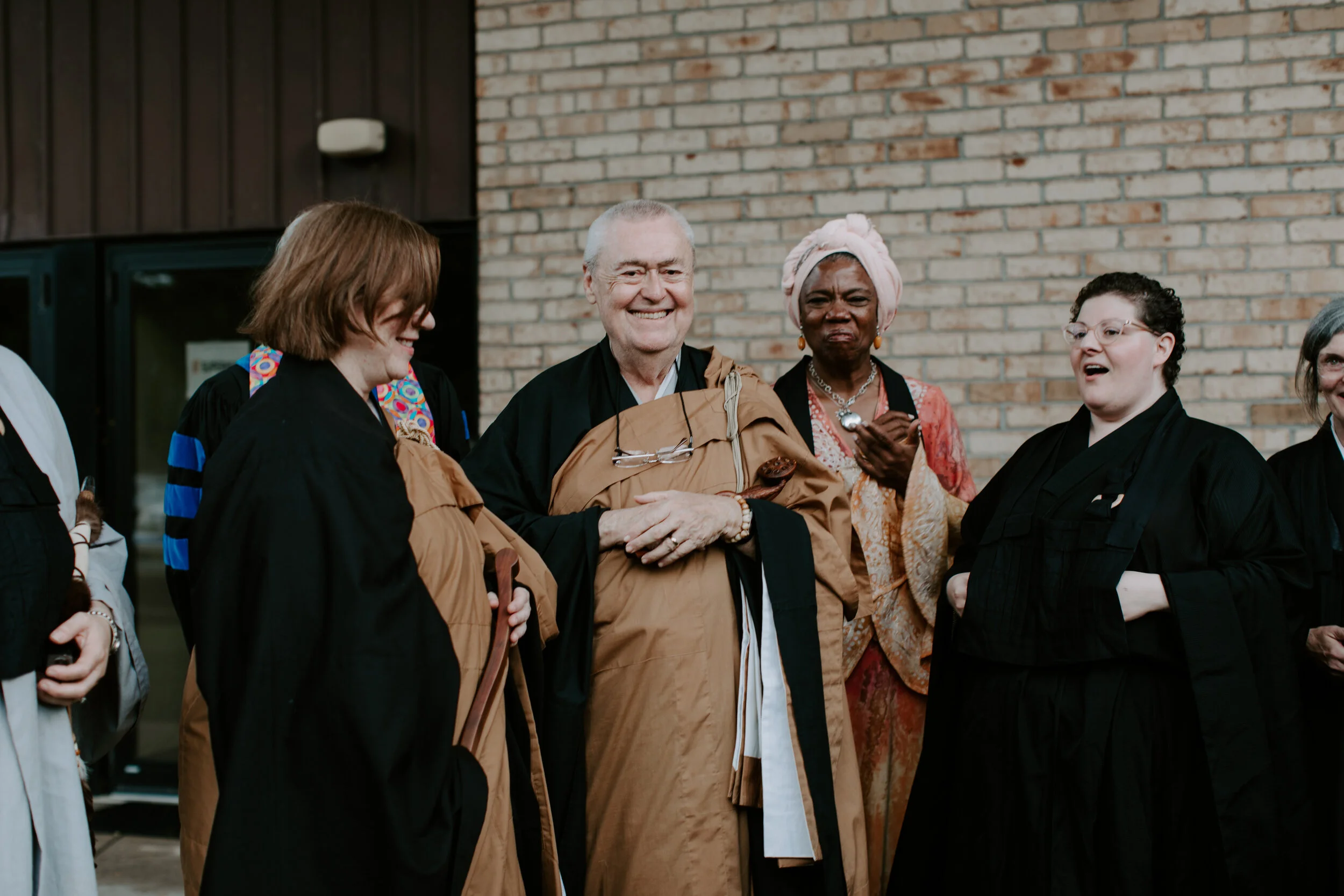
Ango
What is Ango?
Ango is a time of deep engagement with our vow to fully Awaken for the sake of all beings. During this Ango, we will take great care with our bodhisattva practice, including home practice, sesshin practice, and participation in the life of the sangha.
Ango has its roots in the earliest gatherings of the Buddha's disciples. During the rainy seasons in India some 2,600 years ago, mendicant followers of the Buddha would seek shelter in caves for 90 days, and there they would practice and study together with their teacher. Along with Zen communities across the world, we continue a modern incarnation of this ancient tradition.
Guidance on Intensifying Your Practice for Ango
Every Sangha member's practice is different. You know your own situation best. Find a meaningful and workable way to deepen your practice for the next 90 days. For inspiration, here are some ways many Sangha members have engaged with Ango in the past.
- Visit the Temple in person for the first time (or the first time in a long time).
- Set up a home altar and care for it.
- Recite the Daily Liturgy at home every day.
- Take up daily zazen, and if you already have a daily zazen practice add some time.
- Attend more Temple services than usual, and make a commitment to attend in advance.
- Attend sesshin. Come for a morning or an afternoon, or the whole retreat.
- Meet the Teachers for dokusan on Wednesday evenings and at sesshin. Dokusan is a one-on-one interview for guidance about your Zen practice.
- Participate in a Sangha Circle.
- Take up an art project around the Ango theme and share your work-in-progress and final pieces with the Sangha: a haiku each day, photography, calligraphy, song, dance, and so on.
- Attend some or all of the special Ango Events listed above!
Sangha Circles are a way to deepen our connection to each other and our Buddhist practice. Small groups of 6-10 will meet once a month for the three months of Ango for fellowship and to discuss a topic based on the selected Ango texts. The topics will be decided by the teachers and follow the overall selected theme for each Ango.
Sangha Circle groups are facilitated by members of the Temple who complete a training session. Sangha Circle meetings last about two hours, which includes socializing before/after, group check-in, and facilitated group discussion. All Circles will cover the same material each meeting.
A survey will be available with available days/times and basic geographic locations of each circle and those who indicate interest are assigned to a group based on their day/time preferences, availability of spaces in the group and, ideally, with an eye towards having each group comprised of both newer and more experienced members of the Sangha.
Sangha Circle hosting or participation is a fun and fulfilling way to demonstrate an extra commitment to your practice during the Ango period. Please see details below if you are interested in participating or hosting. If you have questions about the Sangha Circles that are not answered here, please contact the Sangha Engagement Committee, info@buddhisttempleoftoledo.org.
Frequently Asked Questions
Are Sangha Circles oriented toward experienced practitioners or beginners?
Sangha Circles are set up so that all participants will feel welcome. The topics will be accessible and interesting for newcomers and long-time practitioners alike.
How often do Sangha Circles meet?
Each Circle meets three times (once a month for three months) during Spring Ango (March-May) and Fall Ango (Sept-Nov). The discussion and practice portions of a gathering are designed to run about 2 hours, including socialization time before and after.
What will the readings be? How far in advance will we be able to get the readings?
The readings will always be short and designed to serve as a focus of discussion. The hosts of the Circles will always have access to the reading available, so the main thing is to come and participate and not worry about preparing anything in advance.
I don't even know enough to ask a question!?!
Good! Beginner's mind (“In the beginner's mind there are many possibilities, but in the expert's mind, there are few.” - Shunryu Suzuki) and all that. Sign up for a Circle!